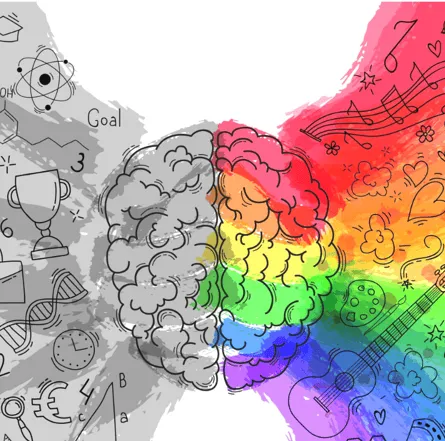
Breaking Barriers in Neurodivergent Advocacy
Imagine being told your child doesn’t belong with you, because they’re different.
It’s hard for me to believe that not long ago, that was the reality for many families raising neurodivergent kids. Within my parents’ lifetime, neurodivergent kids were often placed in institutions after diagnosis, and a lot of neurodivergent kids weren’t even diagnosed because they weren’t “severe” enough.
Many of the people making decisions about these children’s futures didn’t even have a name for what they were experiencing. Autism was misunderstood, and these kids were often just written off because they were different.“Support" often looked like confinement, not compassion and understanding. It wasn’t until the 1970s that special education even existed, and things started to change for ND people.
In episode 123 of the Every Brain Is Different podcast, Janet Elliott shared the story of her brother Michael, who was born in 1961. Doctors told her parents he would be better off “with his own kind,” meaning in an institution.
Her mother bravely responded, “He is with his own kind. His family.”
That single act of advocacy changed the course of Michael’s life.
Janet’s parents didn’t have a roadmap. They didn’t have support groups, IEP teams, or inclusive classrooms. They had to knock on doors, contact local politicians, and create a path forward where none existed, and they did. They got Michael into schools, helping him find ways to communicate through pictures, and eventually supporting his work in digital art.
Today, families raising neurodivergent children have more tools and awareness than ever before. Schools have special education departments. Therapists are learning how to support different communication styles. There are nonprofits, job training programs, and even inclusive businesses, such as Sweet Zola’s Candy Shop, that provide real employment opportunities for adults with disabilities.
Yet, we’re still building the future that neurodivergent people deserve. Our work isn’t done.
We still live in a world where parents have to fight to access services, where adults fall through the cracks, and where community inclusion for people with disabilities is the exception, not the norm.
So what can we do to help?
We listen to stories like Michael’s. We learn from the past. We celebrate the progress and keep pushing forward. We advocate not just for children, but for teens and adults who also deserve meaningful connection, autonomy, and dignity.
To listen for more ideas on how you can advocate for the neurodivergent community, check out episode 123 of the Every Brain is Different podcast.
